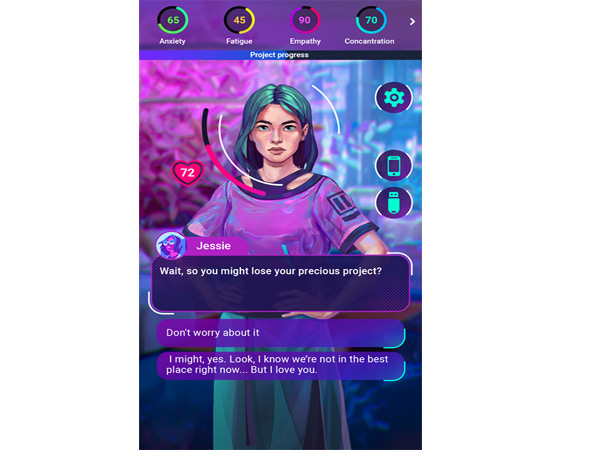
Kaspersky launches video game to play at work
Kaspersky has released a new, story-rich, mobile cybersecurity quest titled [Dis]connected. The interactive adventure is a dive into the daily routine of a person in the near future who is on a quest to maintain a healthy work-life balance and be successful in both their career and relationships. To complement traditional security awareness training programs for enterprises, the game vividly demonstrates the benefits of secure behavior and can be used to reinforce what employees have learned. The game is suited for nationwide educational and media projects.
According to a recent Kaspersky survey of IT and cybersecurity practitioners, 50% of enterprises[1] currently have cybersecurity hygiene courses in place. However, employees may be reluctant to take part in such training programs. Staff members may believe that they could be forced to do someone else’s job, as there is a dedicated department responsible for this area, and they simply don’t see how cybersecurity impacts their life. As a result, even when they have completed the course and learned best practices, they may still act as they did before completing the training.
As a recognized leader in security awareness training in 2021 included in the comprehensive SA&T vendor functionality segment in Forrester’s Now Tech report[2], Kaspersky constantly improves its educational solutions and introduces new up-to-date learning techniques. Thus, to make training more engaging and increase employees’ interests in information security, the company has unveiled its visual novel game – [Dis]connected.
In the game, players live a day (24 hours) that is set in the future when smart home assistants can cook breakfast and underwater homes and human augmentation have become commonplace. Despite technological progress, there are still some issues that are familiar for people now. For instance, the playable character has to simultaneously solve a number of business and work tasks. They love working at a ground-breaking implant manufacturer. However, it is going to be acquired by a competitor, and the terms of acquisition highly depend on how successfully the player’s project will be carried out. In their private life, the aim is not to break up with their partner, who is upset that they spend less time together, while also maintaining good relationships with colleagues and staying productive.
The choices made by players in different areas turn out to be interconnected. For example, if there is a conflict with a colleague, they will not be informed about important changes on their project. Conversely, if chatting with colleagues takes too long, players will miss their work deadlines.
Cybersecurity elements are naturally woven into the plot to show how decisions related to this sphere can help to achieve or ruin the character’s goals. For instance, players who decide to save time and not update their implants will not enhance their productivity and hence won’t be able to complete projects on time. In total, during the game, a user will need to solve 24 cases covering topics such as passwords and accounts, emails, web browsing, social networks and messengers, PC security and mobile devices.
The story has several alternate endings depending on the decisions made. Users will receive a summary of how successfully they coped with the project and what is happening in their personal life, as well as an assessment of their security skills and knowledge.
The one-hour gameplay is delivered in a piecemeal approach, with every session lasting up to ten minutes. This makes it more digestible and helps the player retain knowledge. The game can be offered after employees pass training courses to consolidate all the cybersecurity knowledge they have gained and motivate them to apply their skills in practice. When used in city and nationwide projects, the game improves cybersecurity awareness among citizens.
“This story-rich game is all about the choices and dilemmas of the modern world. Should we use the newest technologies to our advantage even if they create additional security risks? Or should we forgo them for the sake of security and become less effective in our work? Comfort versus security – is it possible to find a balance? Making these sorts of choices in the course of the game will not only help players to embrace how to use technologies in a secure manner but also gain a better understanding about how cybersecurity is intertwined with their daily routine and how it actually affects their lives,” comments Denis Barinov, Head of Kaspersky Academy.
[Dis]connected is currently only available for corporate customers. It runs on Android and iOS smartphones.
Free demo version of the game is available in App Store and Google Play.
[1] The Kaspersky Global Corporate IT Security Risks Survey (ITSRS) interviewed 4,303 respondents across 31 countries. Conducted by B2B International and commissioned by Kaspersky, fieldwork took place in May-June 2021
[2] Forrester Now Tech: Security Awareness And Training, Q4 2021 report
